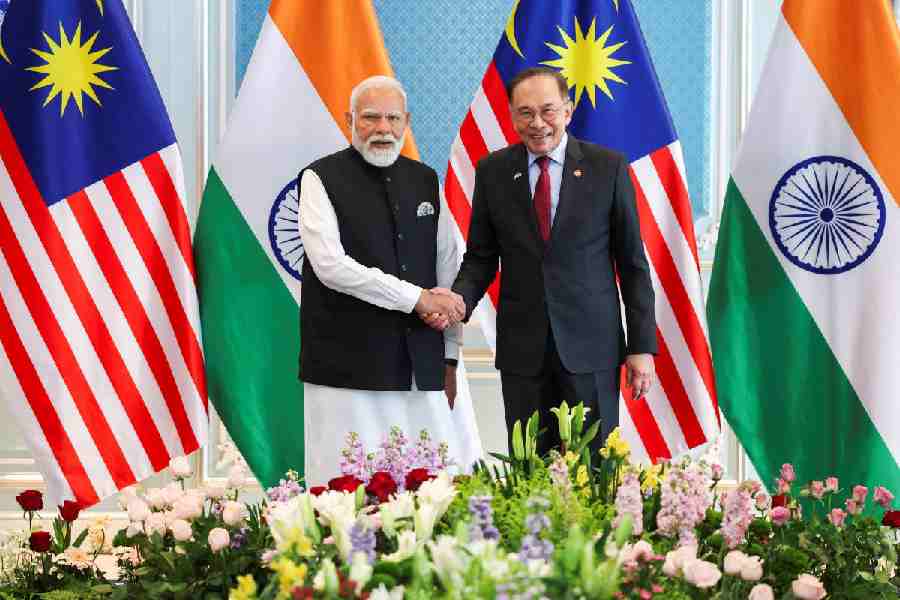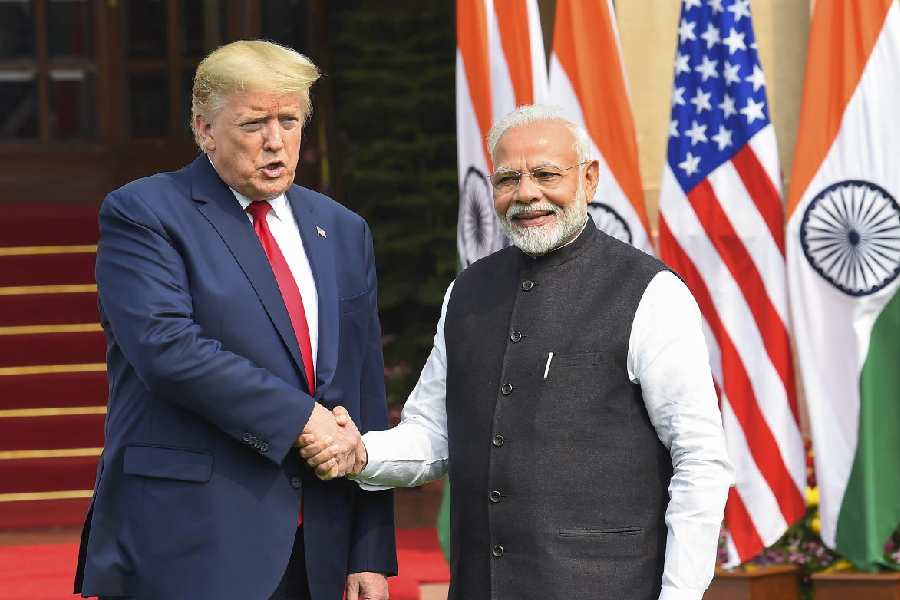It was no theatre though going by the quick change of stage sets it could have been a smart piece of showbiz. The scene was full of gloom when the Economic Survey for 1998-99 presented on Wednesday last week disclosed that most of the estimates of Yashwant Sinha?s first budget had gone awry. The growth of industry had been much slower and that of exports much slacker than he had anticipated. Non-plan expenditure had, on the contrary, gone up menacingly. The result was to make the very idea of prudent fiscal management go haywire. The finance minister himself was in low spirits and some in his entourage feared that things were as grim as in 1991 before the economy was put on a new track.
It just took three days for the clouds darkening the economic scene to disperse. The very men who had brought the bad news now began reassuring the public of the good days ahead. The finance minister was full of bounce and, though the budget for the next financial year presented by him on Saturday showed that the immediate prospects were none too bright, his speech exuded good cheer. N. Chandrababu Naidu was unfair in accusing him of lack of vision. A man who is always careful to promise jam tomorrow has at least vision enough to see that there is no jam today.
As for the future, the finance minister is generous to a fault. He has promised there will be no deficit on revenue account within two years. Of course, the precise mechanism by which he hopes to bring about this miracle has yet to be designed. With bank employees already at his throat, having shown him how they can bring business to a halt to back their demands for a rise in pay scales, whatever sanctions he has in mind to prevent fiscal management from getting out of control, will soon be put to a severe test.
This is, however, a small part of the story of the radical overhauling of the national finances he has in view. Ignoring the danger signals that are going up, he expects to bring the fiscal deficit down to two per cent of the gross national product in four years. That will make the chief executives of all the international lending agencies cry hurrah. But the sceptics will ask for some clue to the means by which he hopes to achieve this feat. As for the end of another decade, the new goals promise not only enough food and clothing but also a home for every family. The sole reason he can feel cosy with such wild promises is that the government of which he is a member may not be there even to account for what happens in the next financial year.
Denis Diderdot, the Enlightenment thinker, took too euphoric a view of the role of reason in human affairs when he warned people against letting themselves ?be carried beyond the limits of truth?. Today people are more wary of the excesses of rationality of which overcentralization, the growth of bureaucracy, new structures of global military and economic power, of political institutions, economic systems and the concepts of democracy, justice and self-determination are painful reminders.
It is easy to see that when even the academic world cannot often agree on the truth about propositions in most social sciences, it is quixotic to expect people engaged in the daily grind of life to think of such abstractions. If the injunction not to cross the limits of truth means nothing more than a piece of advice not to tell a blatant lie or distort a well established fact, it is a mere banality. The trouble is that the imperatives of political, economic and social life often make it impossible for most people to comply even with this commonplace adage.
Does this absolve Sinha of the charge of transgressing the limits of truth when he holds out an obviously phony prospect of a zero deficit on revenue account in two years and a mere two per cent fiscal deficit in four years? The answer to the question is both a yes and a no. Yes, because he is not so daft as not to know that rational economic policies do not always make feasible political propositions. No, because he is not in the business of telling the bare truth or even of ensuring efficient economic management. He had to formulate a budget, with a mix of cosmetics and half remedies, to make it a saleable commodity.
There is little room for quixotry on this score. Even if truth is reduced to a matter of facts and figures, it can be interpreted in a variety of ways. A budget framed by the Congress can be damned as anti-people by its radical detractors who have no compunction in endorsing more or less similar proposals when made by a United Front group it is supporting. Wherever the boundary of truth in contentious issues between political parties, organized interests or powerful lobbies can be located, there is bound to be heavy traffic across the limits. Transgressing imaginary borders is part of the game.
That the players flaunt different religious or ideological labels makes no difference to the immunity all those who participate in the game enjoy from staying on the right side of the borders demarcating the territory claimed by truth. This is because the boundary can be shifted if the party concerned feels this is less bothersome than exposure to the charge of transgression. Josef Stalin had no difficulty in sending millions of workers to slave labour camps and Mao Zedong had no trouble concealing the fact of 30 million hunger deaths from the prying eyes of the world. And successive American administrations could patronize a large assortment of tyrants for decades with an easy conscience as leader of the free world.
Enlightenment philosophers were quite naive in imagining that advances in science and technology would automatically lead to an increasing sway of reason in human affairs. The ability to master the forces of nature has made life much more comfortable for those who have been able to invest money and spirit in this enterprise. But it is no accident that the century which has seen the most spectacular gains in science has also had to put up with more violence, both mental and physical, than all the previous ages put together. Now things have come to a point where nature is having its revenge, threatening to destroy man?s habitat.
In the circumstance the concern over crossing the limits of truth is, if not misplaced, indicative of a certain insensitivity to the way in which many other borders, which have much greater bearing on our daily lives, are being transgressed daily by individuals, groups and nations much to the detriment of the quality of personal life and the role of the public sphere. The shameful violation of the limits to human needs by daily creation of new comforts or status symbols, the distortion of cultural values by the way the market forces impinge on the limits set by a sense of proportion, and the near abolition of the bounds of proprieties of public life are all symptoms of a civilization going to seed, for all its seeming vitality.
No diagnosis of the ills of India or any other poor society can be meaningful unless it takes these evil forces at work into account. The fast changing context has acquired a new edge as the globalization process has got into stride. Cynicism is by no means an invention of the West. The demonstration effect of living mores in affluent societies can be seen in the way this ?ism? is corroding the outlook of elite groups in third world societies, with a feverish increase in their greed for money, lust for power and their apathy towards the sufferings of their own people even as they grieve for the poor as part of a public relations exercise.
Any attempt to imbue economics, particularly development planning and budget making, with moral sense, as Amartya Sen has been advocating, will be frustrated so long as the minds of those engaged in politics are bereft of moral impulses, and they use the services of hoodlums for whom almost all parties are now providing more space.
Whether it is faster growth, renewal of derelict urban areas, poverty alleviation or cutting down the bloated bureaucracy to size, the problems are too large. Political solutions by way of tinkering with the tax structure, mollycoddling the white collar workers, petty manoeuvres and crude sales talk are too timid or feeble. The result of the mismatch is there for all to see. In this situation, the biggest rewards are reserved for those who have set up shop across whatever borders threaten their nefarious business.
 Sunday, 08 February 2026
Sunday, 08 February 2026










